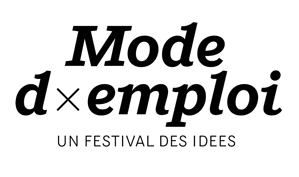Neoliberalism, De-Democratization, Sacrifice
![[title-image]1332154742812[/title-image] all rights reserved](https://cle.ens-lyon.fr/anglais/images/wendybrown_1360572494520-jpg)
Wendy Brown teaches political science at the University of California, where she is also involved in the programs “Critical Theory” and “Women, Gender, and Sexuality.” In Walled States, she suggests that the proliferation of filtering mechanisms is a symptom of nation-states that are increasingly dominated by fear, money, and religion.
> Murs - Les murs de séparation et le déclin de la souveraineté étatique (Les Prairies Ordinaires, 2009).
What are the de-democratizing effects of neoliberal rationality and governance in the Euro Atlantic world? By de-democratization, I do not mean that the West once had democracy, which is now being undone by neoliberalism. I mean that the effort to substantively realize the modern dream of democracy, an effort that is necessarily geographically and temporally variable, interruptible, and inevitably unsatisfied, has been assaulted by the ascendency of neoliberal reason. The institutions and principles aimed at securing democracy, the culture required to nourish it, and the subject oriented toward practicing and caring for it — all of these have been displaced by neoliberal rationality. Neoliberal configurations of the state, society, subject and citizen have both displaced the principles and redirected the energies fundamental to democracy understood very simply as rule of the people (demos - cracy = the people - rule).
This de-democratization is not limited to the effects of explicit neoliberal economic policy and law. Deregulation, dismantling of public industries and public goods (from education to infrastructure), regressive tax policies, capital unleashed in all domains of life — these are, of course, fundaments of neoliberalism. Equally important however is what Foucault called the ascendency of a form of normative reason, a governing rationality, that extends market metrics and practices to every dimension of human life–political, cultural, personal, social, vocational, educational, public and private. This rationality configures the stark production of all human conduct in the image of homo oeconomicus and all human institutions on the model of the firm. It also transforms the state and all other sites of governance into management of an enterprise whose aims are credit enhancement and economic growth. Thus, neoliberal rationality does not merely intensify the liberal dimension of liberal democracy but radically transforms it, displacing democratic for market metrics of judgment, action and justice; transforming the nation into a firm, the state into its manager and citizens into its human capital; and configuring every kind of human activity in terms of rational self-investment or entrepreneurship.
Neoliberalism, of course, is not unified or constant but differs across its geographical instantiations and transmogrifies over time. In the Euro Atlantic world today, two different and quite contingent forces are giving neoliberalism a new shape: on the one hand, financialization is configuring states, firms, associations and subjects in terms of capital valuation or credit worthiness (as opposed to productivity, efficiency, cost-benefit or interest maximization), and on the other hand, austerity regimes are effecting enormous shrinkages in human well being through cuts in jobs, pay, benefits and services. While the combined effect of these two forces are many, of particular significance is the way that the subject once promised radical emancipation by neoliberal reason has perversely become the subject whose moral orientation and fate is now normatively welded to a macro-economic project and whose existence is now easily sacrificed to and by that project.
To grasp how freedom has been converted to sacrifice in the current iteration of neoliberalism in the North, we need to register the following crucial replacements wrought by financialization and austerity politics:
1) Replacement of the figure of the human as a scene of sovereignty and interest with the figure of the human as self-investing human capital. More than a reduction of the person to price, something Marx and even Locke suggest happens early in modernity, the contemporary era features a replacement of the subject who chooses its ends and means with one who must engage in rational self-investment and has only one end, namely to enhance its value as human capital, to self-invest in ways at once responsible and lucrative. This replacement challenges the Kantian figure of human dignity and Lockean figure of human rights long considered to be at the heart of the democratic subject. It even challenges the creature of raw interest articulated by the classical liberals and of pleasure maximization by the utilitarians. This hugely consequential transformation is also what makes us available for sacrifice in novel ways today.
2) Replacement of the image of the nation as a scene of diverse concerns, powers, problems and constituencies with an image of the nation as a firm, bound together by the supervening project of credit worthiness and economic growth.
Pour citer cette ressource :
Wendy Brown, Neoliberalism, De-Democratization, Sacrifice, La Clé des Langues [en ligne], Lyon, ENS de LYON/DGESCO (ISSN 2107-7029), février 2013. Consulté le 07/02/2026. URL: https://cle.ens-lyon.fr/anglais/litterature/entretiens-et-textes-inedits/neoliberalism-de-democratization-sacrifice



 Activer le mode zen
Activer le mode zen

